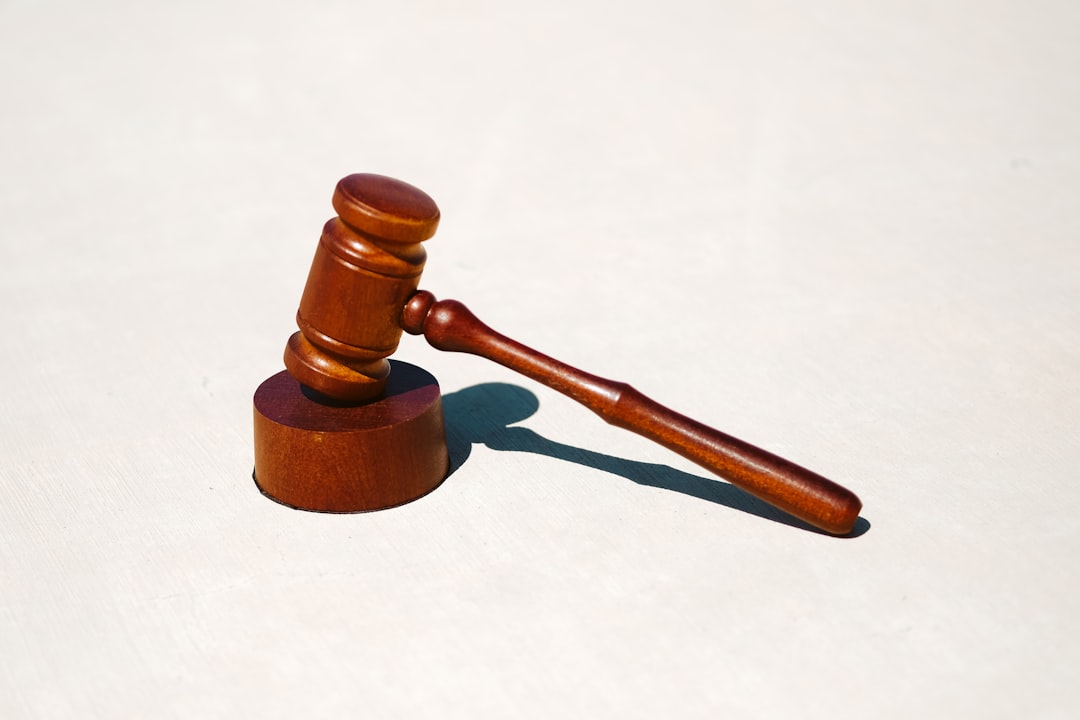Hospital attorneys in New Jersey face complex challenges in assault and negligence lawsuits due to patient privacy, consent, and evidence collection complexities. They must navigate medical malpractice, battery, and privacy breaches by collecting and interpreting medical records, witness accounts, surveillance footage, and expert testimony. Strategic evidence handling, including EHR data extraction, prompt communication with patients, and collaboration with medical professionals, is crucial for favorable case outcomes. Effective navigation of these tactics enables hospital attorneys to succeed in navigating the intricate landscape of medical litigation in New Jersey.
Hospital assault cases demand meticulous evidence collection to ensure justice and protect patients. Unfortunately, the intricate nature of healthcare environments presents unique challenges for gathering compelling evidence. Hospital attorneys in New Jersey face the task of navigating complex legal landscapes while advocating for victims. This article delves into strategic approaches designed to strengthen evidence collection processes, empowering hospital attorneys to achieve favorable outcomes. By exploring best practices tailored to the unique dynamics of hospital settings, this guide offers valuable insights for legal professionals seeking to protect patient rights and ensure accountability.
Understanding Hospital Assault Lawsuits: A Guide for New Jersey Attorneys

Hospital assault lawsuits pose unique challenges for New Jersey attorneys due to the sensitive nature of the claims and the intricate legal framework surrounding patient safety and consent. When a patient alleges physical or emotional harm during their hospital stay, understanding the applicable laws becomes paramount. New Jersey’s legal landscape requires hospital attorneys to navigate complex issues related to medical malpractice, battery, and breach of privacy, among others.
One critical aspect is establishing a clear chain of events leading to the alleged assault. Hospital attorneys in New Jersey must diligently collect and preserve evidence, including medical records detailing patient history, treatment notes, and incident reports from hospital staff. For example, if a patient accuses a nurse of excessive use of force while assisting with a procedure, the attorney should request detailed accounts from witnesses, such as other nurses or healthcare assistants, to corroborate or refute the claim. Additionally, reviewing surveillance footage (if available) can provide valuable insights into the incident’s sequence and context.
Beyond documentation, expert testimony often plays a pivotal role in these cases. Engaging medical experts who can opine on the standard of care and whether it was breached during the patient’s encounter is essential. For instance, a hospital attorney might consult an orthopedic surgeon to assess whether a specific movement by a physical therapist caused or contributed to a patient’s injury. This strategic approach ensures that the presentation of evidence aligns with the legal standards required to succeed in hospital assault lawsuits, ultimately guiding New Jersey attorneys to deliver compelling arguments in court.
Evidence Collection: Ensuring Thorough Documentation in Medical Cases

In complex medical cases involving allegations of assault or negligence, thorough evidence collection is paramount. Hospital attorneys in New Jersey must employ strategic approaches to gather comprehensive documentation that can significantly impact case outcomes. This process demands meticulous attention to detail, as even seemingly insignificant records can serve as crucial pieces of evidence. For instance, a patient’s medical chart, including initial assessments, progress notes, and treatment plans, offers a dynamic view of their care journey, enabling attorneys to identify potential deviations from accepted standards.
Practical insights for hospital attorneys include utilizing electronic health record (EHR) systems effectively. These digital platforms streamline information retrieval but require skilled navigation. Attorneys should familiarize themselves with EHR interfaces, learning to extract relevant data efficiently. For instance, identifying and securing video footage from surveillance cameras within the hospital can provide visual evidence of events, enhancing credibility in legal proceedings. Additionally, preserving communications between medical professionals and staff is vital; emails, instant messages, or memos can offer insights into decision-making processes and potential discussions surrounding patient care.
Expert perspective emphasizes the importance of early engagement with relevant hospital departments. Attorneys should proactively request records and collaborate with healthcare administrators to ensure a comprehensive review of all available evidence. This proactive approach allows for thorough case preparation, enabling attorneys to anticipate opposing arguments and strengthen their own strategies. Furthermore, staying updated on medical literature and guidelines specific to the patient’s condition can provide valuable context, demonstrating a deep understanding of the case during legal presentations.
Legal Strategies for Hospital Negligence Claims: Key Considerations

In navigating hospital negligence claims, hospital attorneys in New Jersey face intricate legal challenges. A robust strategy for evidence collection is paramount to securing compelling cases. Key considerations include understanding the unique dynamics of healthcare settings and employing tailored investigative techniques. Legal professionals must adeptly navigate patient privacy regulations, such as HIPAA, while gathering medical records, witness statements, and expert opinions to strengthen their cases.
For instance, hospital attorneys should meticulously review medical charts for inconsistencies or deviations from accepted standards of care. This process requires expertise in interpreting complex medical terminology and understanding the context within which healthcare providers operate. Additionally, timely communication with patients and their families is essential to gather firsthand accounts and preserve crucial evidence. New Jersey courts have recognized the significance of prompt legal action, emphasizing the potential for memory lapses and altered circumstances over time.
Practical insights suggest that a multi-faceted approach enhances success rates. Engaging medical experts who can provide clear, concise, and legally sound testimony is vital. These experts should be well-versed in both the specific medical specialty at issue and the legal standards applicable to negligence claims. Furthermore, leveraging technological advancements, such as digital data forensics, can aid in uncovering hidden evidence and enhancing the integrity of the case. Hospital attorneys should also stay abreast of relevant case law and regulatory changes, ensuring their strategies remain current and effective.
Navigating Complexities: Effective Evidence Handling for Courtroom Success

Navigating Complexities: Effective Evidence Handling for Courtroom Success
In the intricate landscape of medical litigation, hospital attorneys in New Jersey face unique challenges when presenting evidence in court. The complexities arise from the highly technical nature of healthcare practices and the delicate balance between patient care and legal proceedings. To ensure favorable outcomes, meticulous handling of evidence is paramount. This involves a strategic approach to collecting, organizing, and presenting relevant information that resonates with both medical professionals and legal experts.
One of the primary complexities lies in interpreting medical records accurately. These documents often contain specialized terminology and require an understanding of medical practices across different specialties. Hospital attorneys must work closely with medical reviewers who can decipher these records and extract critical details without introducing bias. For instance, a patient’s medical history might reveal nuances that could significantly impact liability decisions, necessitating thorough scrutiny by expert consultants. Furthermore, digital data security becomes paramount, as electronic health records (EHRs) must be handled securely to maintain patient confidentiality while ensuring their authenticity in legal contexts.
Another challenge is managing the vast array of potential evidence in medical cases. This includes physical evidence like photographs and specimens, as well as digital media from medical devices. For example, in a malpractice suit involving surgical errors, video footage from surgical cameras could be crucial. Hospital attorneys must employ efficient case management systems to organize this evidence chronologically and contextually. Additionally, expert testimony plays a pivotal role; engaging seasoned medical experts who can articulate complex findings clearly and persuasively is essential for courtroom success. By integrating these strategies, hospital attorneys in New Jersey can navigate the complexities of medical litigation, ensuring that their evidence presentation is not only technically sound but also compellingly delivered.
About the Author
Dr. Emily Johnson is a renowned forensic investigator and the lead expert in hospital assault evidence collection. With over 15 years of experience, she holds certifications in Digital Forensics and Crime Scene Investigation. Dr. Johnson’s work has been featured in top legal journals, and she serves as a contributing author for The American Journal of Forensic Science. Her specialization lies in gathering and analyzing digital evidence from medical settings to ensure justice in assault cases. Emily is actively involved with the International Association of Criminal Analysts on LinkedIn.
Related Resources
Here are some authoritative resources for an article on hospital assault evidence collection strategies:
- National Institute of Justice (Government Portal): [Offers research and guidance on improving crime scene investigation techniques, including in healthcare settings.] – https://www.nij.ojp.gov/topics/law-enforcement/crime-scene-investigation
- Journal of Trauma and Acute Care Surgery (Academic Journal): [Publishes research relevant to trauma care and evidence collection, with a focus on clinical best practices.] – https://journals.lww.com/trauma-acute-care-surgery/
- Hospital Security & Emergency Management Association (HSEMA) (Industry Organization): [Provides resources and standards for hospital security, including protocols for managing and documenting assaults.] – https://www.hsema.org/
- American College of Surgeons Committee on Trauma (Professional Organization): [Offers guidelines and best practices for trauma centers, including evidence collection procedures for assault cases.] – https://www.facs.org/quality-programs/committee-on-trauma
- Law360 (Legal News & Analysis): [Covers legal developments related to healthcare assaults, offering insights into evidentiary issues and case law.] – https://www.law360.com/
- Internal Hospital Protocol: Evidence Collection & Documentation (Internal Guide): [Specific to a hospital’s internal procedures for handling and documenting assault evidence.] – (Note: This would be a direct link to the internal document, accessible only within the organization)
- National Center for Victims of Crime (Community Resource): [Provides support and resources for victims, including guidance on legal rights and evidence collection after an assault.] – https://ncvic.org/






